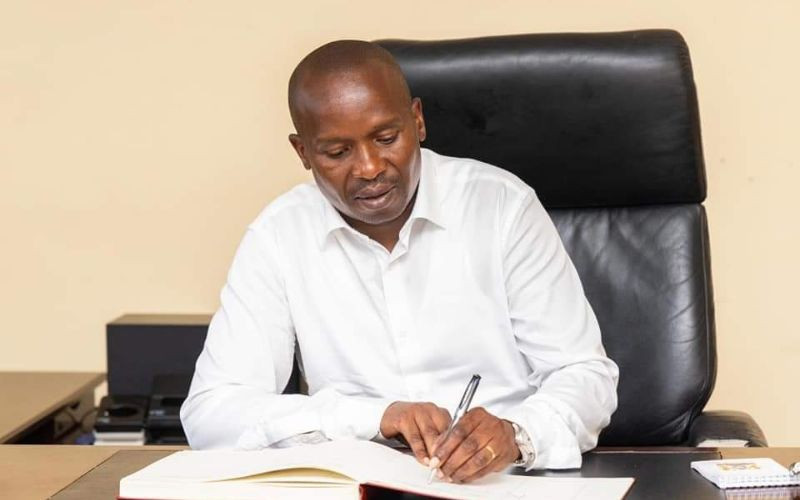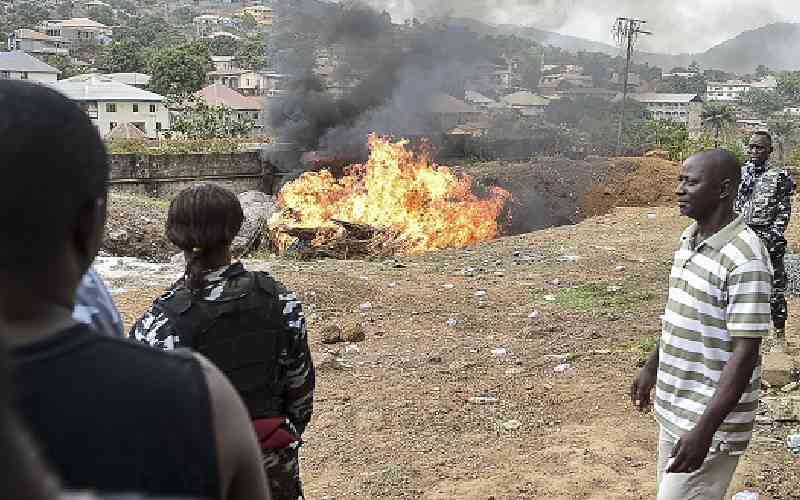By OYUNGA PALA
When driving on Kenyan roads, the biggest hazard is not potholes, but traffic policemen.
Most Kenyan drivers will not readily admit to bribery charge unless they are matatu drivers. But most of us, if asked politely, will confess that we made a contribution to the police fund. So it comes as no surprise that the Inspector General Kimaiyo was quoted pleading with the public not to bribe his officers.
He was probably reacting to the latest Transparency International Report that placed Kenya in a prominent fourth position, in a worldwide list of countries where bribery is rampant. Apparently, 70 per cent of those surveyed reported to have given a bribe. If they had bothered to survey Kenyan drivers, the percentage would have been closer to 90.
Kenyan traffic cops are so wired to receiving bribes that even when there is nothing wrong with your vehicle or road manner, they still hover over your window, giving you that, hata kachai look. Those who drive newly manufactured cars hardly ever notice the traffic police because they rarely get flagged down. But for those who drive cars manufactured before the year 2000, pickup trucks or a Probox, regular bribing is part of the driving experience. It does not matter whether the car has a fault or not.
Traffic police are masters of vehicle forensics, and even when you think your car is road worthy, they will find something wrong. Few people are as resourceful as a traffic police officer building up a case for a bribe. The general tactic is to make the incidence frustratingly inconveniencing, until the stubborn driver finally relents and agrees to ‘talk’.
If the car, by some rare miracle, happens to be in tip top shape despite the rigorous roadside inspection, the adamant cop will demand to see your first aid box. It is hopeless arguing about your rights. It is much easier to plead ignorance and ask for forgiveness.
Brand new car owners will probably remind me of my constitutional rights, but years of regular intimidation by traffic policemen threatening to haul my vehicle to a police yard, for imagined and minor traffic offences, have left me subservient around these officers.
Even since I started driving over a decade ago, I learnt to adopt a certain submissive demeanour whenever I met traffic police manning roadblocks across the country. If you own an old car, you must get used to the routine profiling.
I would always open up with a greeting, “Habari ya ofisa (hello, officer).” My window would also be wound down, smile on my face, driving licence within reach and hazard lights blinking.
Expired vehicle insurance papers and driving licences are non-negotiable. Bald tires and broken taillights allow for haggling, and mostly, you can get away with a strong warning for not wearing a safety belt.
The endemic bribery in the police force is systemic and if the Inspector General wants to be taken seriously, he ought to start at the top.
The cops on the beat are just following the lead from above.
Stay informed. Subscribe to our newsletter
 The Standard Group Plc is a
multi-media organization with investments in media platforms spanning newspaper
print operations, television, radio broadcasting, digital and online services. The
Standard Group is recognized as a leading multi-media house in Kenya with a key
influence in matters of national and international interest.
The Standard Group Plc is a
multi-media organization with investments in media platforms spanning newspaper
print operations, television, radio broadcasting, digital and online services. The
Standard Group is recognized as a leading multi-media house in Kenya with a key
influence in matters of national and international interest.
 The Standard Group Plc is a
multi-media organization with investments in media platforms spanning newspaper
print operations, television, radio broadcasting, digital and online services. The
Standard Group is recognized as a leading multi-media house in Kenya with a key
influence in matters of national and international interest.
The Standard Group Plc is a
multi-media organization with investments in media platforms spanning newspaper
print operations, television, radio broadcasting, digital and online services. The
Standard Group is recognized as a leading multi-media house in Kenya with a key
influence in matters of national and international interest.








